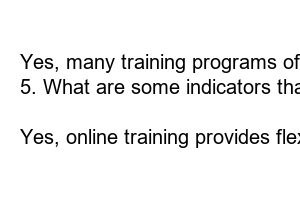안전관리자 보수교육
Title: Enhance Workplace Safety with Safety Manager Refresher Training
Introduction:
In any organization, the safety and well-being of employees should always be of paramount importance. This is where the role of a safety manager becomes crucial. Safety managers are responsible for ensuring that all safety protocols and standards are upheld, minimizing workplace accidents, and promoting a secure working environment. To ensure safety managers remain up-to-date with the latest techniques and regulations, refresher training is essential.
1. The Importance of Safety Manager Refresher Training:
Safety protocols and regulations constantly change, making it imperative for safety managers to stay knowledgeable and well-informed. Refresher training helps them stay updated on evolving best practices, emerging risks, and the latest safety equipment. It reinforces their ability to recognize potential hazards and implement effective preventive measures.
2. Addressing Current Workplace Safety Challenges:
Safety manager refresher training tackles various workplace safety challenges head-on, such as preventing workplace violence, managing stress-related issues, and fostering mental well-being. By imparting the necessary skills and knowledge, this training ensures safety managers can quickly identify and mitigate potential risks associated with these challenges.
3. Enhanced Emergency Preparedness and Response:
The ability to efficiently handle emergencies is a fundamental aspect of a safety manager’s responsibilities. Refresher training focuses on honing emergency response skills, from effective communication during crises to proper evacuation procedures. It ensures safety managers are prepared to lead and protect employees during critical situations.
4. Promoting a Safety Culture:
Training not only focuses on the individual safety manager but also on fostering a safety culture within the organization. It emphasizes the importance of sharing safety information, engaging employees, and encouraging everyone to be accountable for their own and their colleagues’ safety. This collaborative approach creates a safer work environment for all.
5. Leveraging Technology for Safety Management:
With advancements in technology, safety management has become more streamlined and efficient. Refresher training equips safety managers with the knowledge to leverage tools like data analysis, digital systems, and remote monitoring for hazard identification and risk assessment. These tools help them proactively identify potential risks and implement preventive measures.
6. Case Studies and Real-Life Scenarios:
Safety manager refresher training often includes case studies and real-life scenarios to provide practical, hands-on learning experiences. By analyzing past incidents, safety managers can learn from mistakes and develop strategies to prevent similar occurrences. This approach enhances their decision-making abilities and helps them anticipate and mitigate potential risks.
7. Summary:
Safety manager refresher training plays a crucial role in maintaining a safe and secure work environment. By staying updated on industry best practices and evolving regulations, safety managers are better equipped to identify and mitigate workplace hazards, handle emergencies, foster a safety culture, leverage technology, and learn from past incidents. Prioritizing this type of ongoing training is an investment in the well-being and success of both employees and the organization as a whole.
FAQs:
1. How often should safety managers undergo refresher training?
Refresher training should be conducted at least once a year, but it is advisable to consider more frequent training to address emerging challenges and changes in regulations.
2. Can safety managers receive certification through refresher training?
Yes, refresher training programs often provide certification upon completion, which validates a safety manager’s competencies and knowledge.
3. Is refresher training only beneficial for experienced safety managers?
No, refresher training benefits safety managers at all levels of experience. It helps experienced professionals stay updated and provides foundational knowledge to those new to the role.
4. Can safety manager refresher training be tailored to specific industries?
Yes, many training programs offer industry-specific modules that address unique safety challenges and regulations faced by different sectors.
5. What are some indicators that safety managers require refresher training?
Indicators may include an increase in workplace accidents, changes in safety regulations, new equipment or technology adoption, or an organizational commitment to continuous improvement.
6. Are there online options available for safety manager refresher training?
Yes, online training provides flexibility and convenience, allowing safety managers to undergo refresher training without the need for travel or time away from work.

